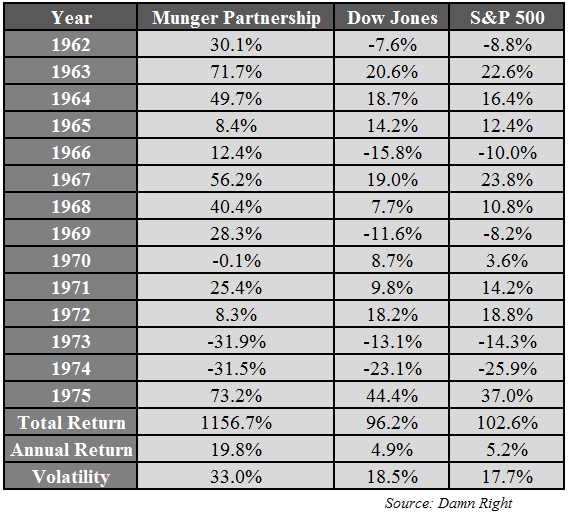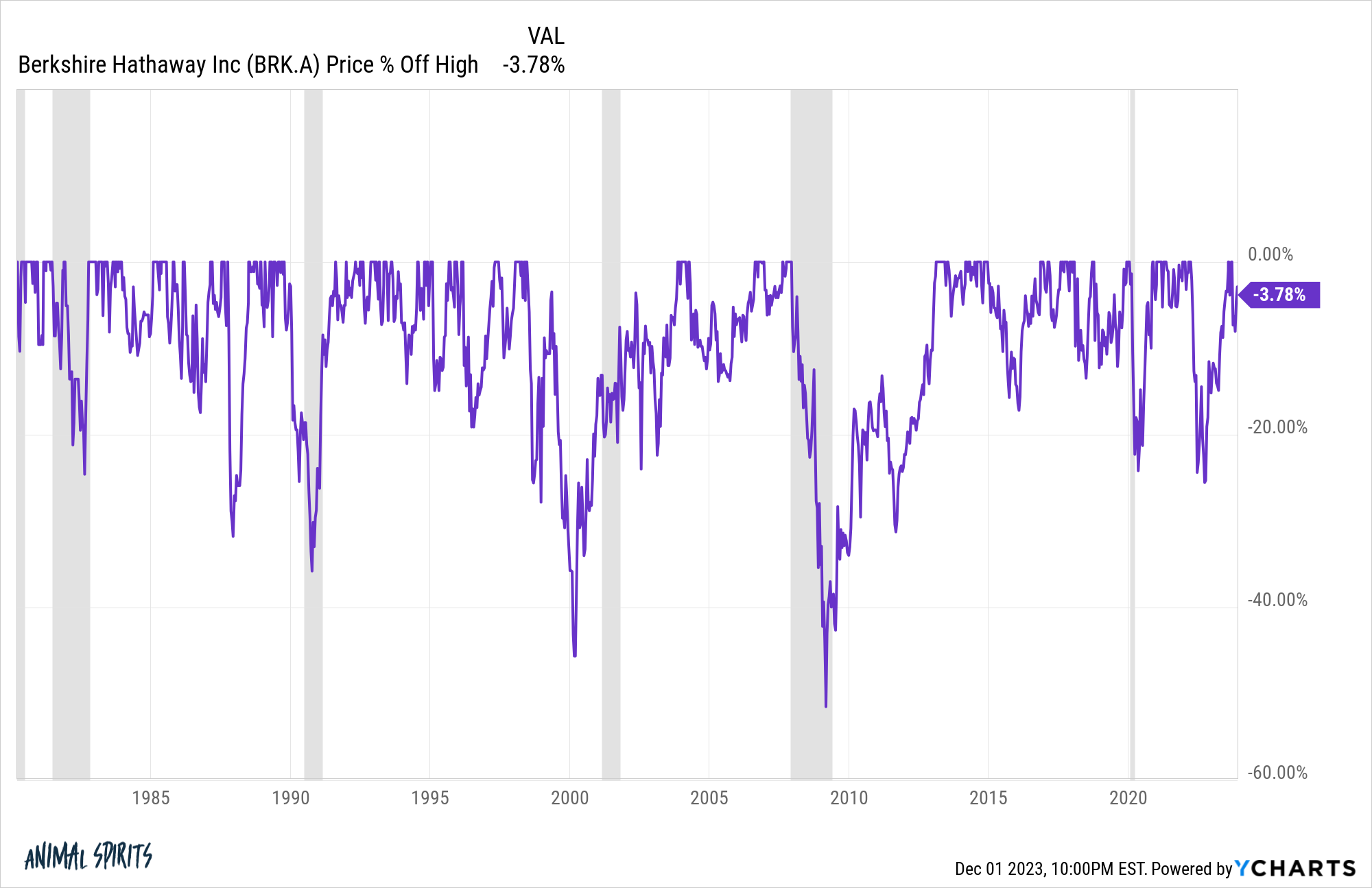After Charlie Munger passed away this week, I went looking through an old post I wrote about his investing principles from a decade ago.
There was a table I recreated that showed the annual returns from the Munger Partnership, which was the fund he ran before joining Buffett at Berkshire Hathaway for good:

The results are spectacular but look at how volatile his returns were. Munger was down more than 53% during the 1973-1974 bear market.
The losses didn’t matter, of course, because the gains more than made up for them.
The same dynamic applies to Berkshire Hathaway.
Munger joined Buffett full-time at the former textile company-turned-investment-arm in 1978. Since then Berkshire Hathaway has compounded capital at nearly 19% per year, an incredible return.
But there were plenty of drawdowns along the way to those unbelievable returns:

Over the past 40+ years Berkshire Hathaway has experienced drawdowns of -20%, -32%, -34%, -46%, -51%, -22% and -25%. That’s plenty of bear markets and crashes.
Which brings us to one of my favorite Munger quotes:
If you’re not willing to react with equanimity to a market price decline of 50% two or three times a century you’re not fit to be a common shareholder and you deserve the mediocre result you’re going to get compared to the people who do have the temperament, who can be more philosophical about these market fluctuations.
Of course, being more philosophical about market fluctuations is not easy.
Losing money is no fun. Making money is hard. Investing is HARD.
It can be grueling for mere mortals like you and I but it’s even hard for legends like Munger and Buffett.
A few weeks ago I listened to one of Munger’s final interviews on The Acquired Podcast.
Even at 99 years old he was still cagey and sharp.
The overarching theme of Munger’s message in this interview was how difficult it was to produce such an enviable track record.
I loved his answer when asked if Buffett and Munger could replicate Berkshire Hathaway’s success if both we in their 30s starting out today:
The answer to that is no, we wouldn’t. We had… everybody that had unusually good results… almost everything has three things: They’re very intelligent, they worked very hard, and they were very lucky. It takes all three to get them on this list of the super successful. How can you arrange to have just […] good luck? The answer is you can start early and keep trying for a long time, and maybe you’ll get one or two.
Refreshingly humble.
Munger mentioned how hard it is to achieve investment success on multiple occasions:
Why shouldn’t it be hard to make money? Why should it be easy?
It was never easy. It’s thoroughly understood it was never easy, and it’s harder now. Those are the two. But it takes time.
I knew when I was 70 that it was hard. It’s just so hard. I know how hard it is now. Always, people who are getting this 2 and 20, or 3 and 30, or whatever, they all talk because oh, it was easy. And they get to believing their own bullshit. And of course, it’s not very easy. It’s very hard.
I love it.
There are so many successful people today who try to make it seem like it should be easy to replicate their success.
If you just follow these 10 simple steps or read this one book or live by these inspirational quotes, blah, blah, blah.
Finding success can be simple but it’s never easy.
It’s even harder to recreate the success of someone else considering how much luck is involved in the process.
I’ll leave you with a Munger quote from Damn Right by Janet Lowe:
Each person has to play the game given his own marginal utility considerations and in a way that takes into account his own psychology. If losses are going to make you miserable – and some losses are inevitable – you might be wise to utilize a very conservative patterns of investment and saving all your life. So you have to adapt your strategy to your own nature and your own talents. I don’t think there’s a one-size-fits-all investment strategy that I can give you.
Amen.
Further Reading:
Charlie Munger’s Investing Principles
10 Underrated Charlie Munger Quotes
Where I Disagree with Charlie Munger
Buffett & Munger on How to be a Hack
